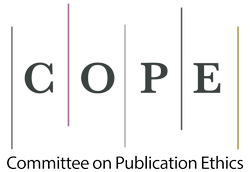COGNITIVE LINGUISTICS IN ENGLISH: THE ROLE OF THE ENGLISH LANGUAGE IN CRITICAL AND LOGICAL THINKING
Keywords:
Cognitive linguistics, critical thinking, logical thinking, english language, reasoning, argumentation, conceptual metaphors, syntactic structures, semantic analysis, pragmatic context, cognitive processes, language and cognition, educational implications, language learningAbstract
This thesis explores the role of the English language in cognitive linguistics, with a particular focus on its contributions to critical and logical thinking. It examines how English facilitates cognitive processes such as reasoning, argumentation, and problem-solving through its linguistic structures and usage. By analyzing key concepts in cognitive linguistics and their application to English, the study aims to understand how the language shapes and enhances cognitive abilities and influences logical and critical thinking.
References
Lakoff, G., & Johnson, M. (1980). Metaphors We Live By. University of Chicago Press.
Langacker, R. W. (2008). Cognitive Grammar: A Basic Introduction. Oxford University Press.
Barsalou, L. W. (2008). Grounding Cognitive Processes in Perception and Action. In The Cambridge Handbook of Cognitive Science (pp. 211-228). Cambridge University Press.
Croft, W., & Cruse, D. A. (2004). Cognitive Linguistics. Cambridge University Press.
Katz, J. J. (1990). Semantic Theory. Harper & Row.
Searle, J. R. (1969). Speech Acts: An Essay in the Philosophy of Language. Cambridge University Press.





























